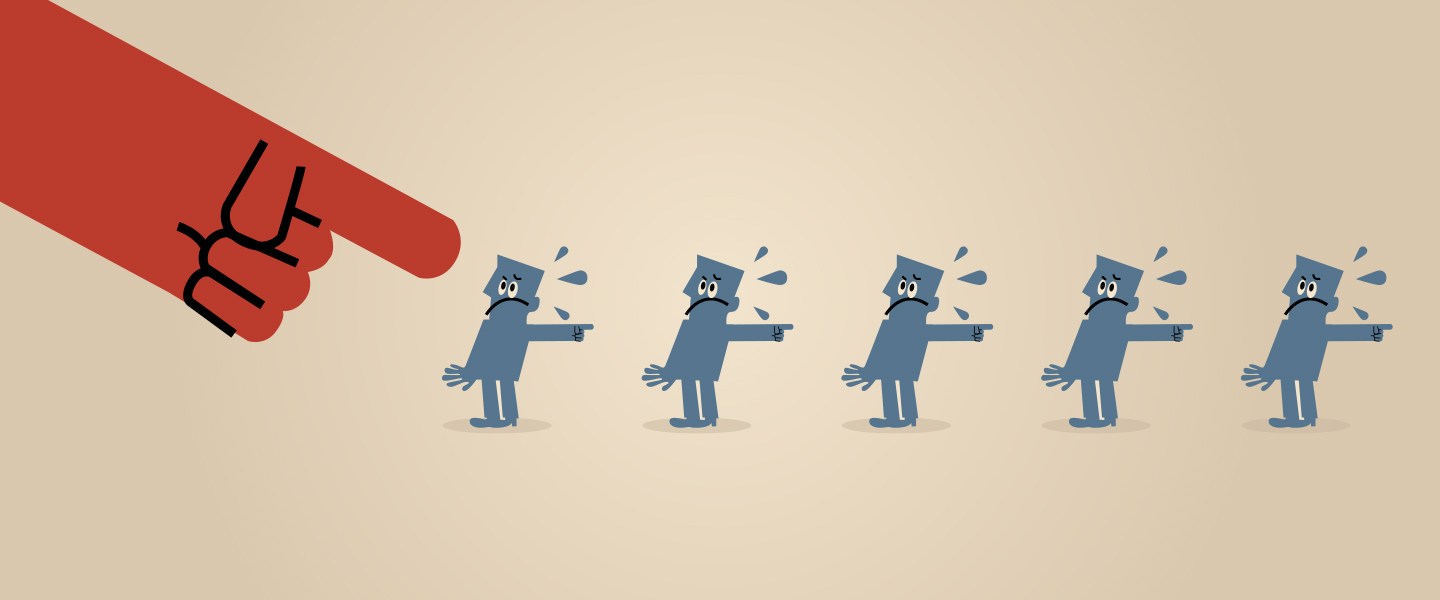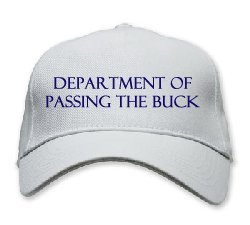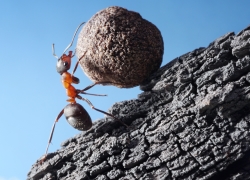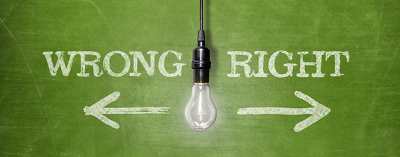“The sandwich did it” – reflections on moral maturity
July 26th, 2018 | Published in Childhood; Abuse, Favorites
“The sandwich did it”
Or, how my pre-kinder granddaughter got me thinking about passing the buck as a measure of moral maturity – hers compared with politicians and other public figures in the news at the time.
I used to call her Awesome-1, because she’s the first-born of my two granddaughters. She corrected me, holding up four fingers to do so. That’s how many she nearly is, she told me. (Not quite, but never to mind). So, now I call her Awesome-nearly-4, and her younger sister Awesome-nearly-1.
On the day I recount here, we were on our way to the zoo, one of our favourite places. We were in the back seat together. I always pack food to go, and she always wants to start eating it in the car.
“I’m a little bit hungry,” she announced.
We were five minutes from her home, where she had just finished breakfast of porridge, yoghurt, and toast.
“Would you like a sandwich?” I asked (this being my role).
“Two pieces,” were her instructions.
“One at a time,” I said, knowing she couldn’t really be hungry.
“Two…”
We entered negotiations about two versus one, one versus none. On this occasion, she accepted one as the best offer.
I handed over the sandwich and spent a couple of minutes rummaging in my (always) over-full bag, telling the driver (Papa) that he had the easy job, and looking out the window.
When I looked back, she had opened the sandwich, licked the vegemite from both pieces of bread, and spread it all over her face and hands in the process.
“Look at you,” I said. ”Very messy.”
“I’m not messy,” she stated, matter-of-factly.
“Who made all that mess then?” I wondered out loud.
“The sandwich did it.”
I laughed, and wanted to hug her, but couldn’t because of our seat belts. Maybe just as well not to celebrate her cleverness too much!
At around the time of this conversation with my beloved Awseome-nearly-4, several news items caught my attention. They involved politicians and other public figures, all attributing their less than admirable behaviour to someone or something outside themselves. In other words, operating at more or less the same moral level as my pre-kinder granddaughter.
“She made me do it”
This was how Barnaby Joyce, MP, explained his paid appearance ($150,000.00) on commercial television with his former media adviser, lover, and mother of his fifth child, Vikki Campion. It was her idea, he said. He just had to go along with it!
The tell-all came at the tail end of a media frenzy about the relationship, the breakup of Joyce’s marriage, possible conflict of interest in relation to Campion’s post-advisory employment, and alleged misuse of public funds.
When Joyce was asked to justify being paid to appear on television (a breach of ethics for politicians) he passed the buck to Campion. He also claimed that because he didn’t have the right to sue the media for breach of privacy this was their opportunity to set the record straight. He was not put off, apparently, by the irony of doing so on public media.
“My staffer did it”
Michaelia Cash, another MP, when asked to explain how the media was tipped off about a federal police raid on union offices, said her chief media adviser did it. (The raid was an attempt to sling mud at the leader of the Opposition).
Cash was, she claims, unaware of the tip-off that allowed cameras to be in place even before the raid occurred. Her media adviser acted unilaterally, she said. And, no, she would not attend court to answer questions, even though she is responsible for the conduct of her office. Anyway, she’s no longer in that office. There’s been a cabinet reshuffle. Not her problem any longer, so there!
What’s more, when a whiteboard hid her from view when she was under fire to answer questions, she wasn’t to blame for that either. Parliamentary security did it without her knowledge, she asks us to accept. They took full responsibility, she insisted.

“My mum did it”
Writing about Barnaby Joyce and Michaelia Cash, Jacqueline Maley recalled another infamous story about cricketer, Shane Warne. He was sprung for having taken banned diuretics before a cricket match.
Warne (in his thirties at the time) claimed he took only one of what he called a “fluid tablet”. It was given to him by his mother, he said, to help get rid of his double chin.
The pill contained chemicals normally used to aid temporary weight loss, but which can also serve to mask performance enhancing drugs.
Public opinion was divided over Warne, and I have no view on his use, or non-use, of drugs. My interest is in the way he deflected responsibility onto his mother. Not a good look for a thirty-year-old!
“The Obamas (or the medication) did it”
Moving outside Australia, Roseanne Barr provides another example. Her show on a US network was cancelled following a racist tweet she posted to her 809,000 followers.
Initially contrite, Barr later retweeted suggestions that the Obamas may have played a role in the axing of her show because she made fun of their Netflix deal.
If it wasn’t the Obamas’ fault, then it was probably the sleep medication:
“Not giving excuses for what I did,” she tweeted, “but I’ve done weird stuff while on ambien – cracked eggs on the wall at 2am etc.”
The drug manufacturers retorted that “racism is not a known side effect”.
“Jesus told me to”
I’m sure you’ve got the idea, but here’s one final example.
Christian televangelist, Jesse Duplantis, “called on his flock to fork out US$54 million after claiming Jesus told him he needed a new private jet”. Planes get him closer to the Lord, he explained, describing “a divine conversation in which Jesus asked for the new aircraft by name”.
Apparently private jets are a thing with televangelists, and getting their followers to pay for them is all in a day’s work. Duplantis himself already has three jets.

When adult moral age mirrors pre-kinder level
There was clearly a pattern in these examples, and it was one the adults, prominent figures in public life, shared with my pre-kinder granddaughter. When they did something dubious, and were called on it, they deflected responsibility away from themselves – onto something or someone else.
Was this failure to take responsibility sub-optimal for adults, I wondered, or was Awesome-nearly-4 being sophisticated for her age?
I thought my granddaughter’s comeback was pretty clever. A couple of articles at around the same time, one on children’s moral development and one on lying suggested, however, that she was behaving pretty much as expected for her age.
“From a developmental perspective, lying in young children is rarely cause for concern. In fact, lying is often one of the first signs a young child has developed a theory of mind, which is the awareness others may have different desires, feelings, and beliefs to oneself.”
So, when Awesome-nearly-4 claimed “the sandwich did it”, she might have been using an awareness of my feelings about mess to explain the mess she had made with the sandwich in terms she thought I would accept.
“To become a moral being is quite an undertaking,” Karri Neldner and Charlie Crimston write, “and it takes time.” Give children a break, is their message. “They’ll get there.”
Most children may do. But not all. I’m not sure how much patience we’re supposed to have with adults who deflect responsibility for their behaviour. Especially when they have a role in running the country, as the politicians in the above examples do.
“I worked hard to get where I am”
An interesting thing about buck-passing (external attribution to be formal about it) is that it mainly happens with behaviours that are reprehensible in some way, rarely with admirable ones.
 When, for example, was the last time you heard a politician attribute an achievement to a staffer? Or, the last time you heard anyone recognise luck as contributing to their wealth, status, or power? Far more likely to hear how hard such people have worked to get where they are. As if it all comes down to their effort and merit.
When, for example, was the last time you heard a politician attribute an achievement to a staffer? Or, the last time you heard anyone recognise luck as contributing to their wealth, status, or power? Far more likely to hear how hard such people have worked to get where they are. As if it all comes down to their effort and merit.
Not so, according to research discussed by Lionel Page and Romain Gauriot who make the following points:
- In any success there is an element of luck: being at the right place at the right time, with the right people, having made choices that end up having unexpectedly good outcomes.
- In simulations, lucky individuals, rather than the most skilful, are the most successful.
- Success is often overly rewarded, the element of luck being overlooked.
- Successful entrepreneurs are praised for their business acumen, their luck going unmentioned. Many of them write books about how they made it to the top – and how you can too, if you buy their books and follow their advice.
- These books don’t highlight the many who tried to make it to the top, often with the same recipe, but who failed. [Nor do they, I expect (I haven’t read any) provide evidence of all the people who supposedly became rich after studying their books.]
Does any of this matter? Does moral development matter?
Whether attributions matter depends on what is being attributed by whom and to whom/what. Awesome-nearly-4’s vegemite doesn’t matter, as long as she’s a bit more nuanced by the time she’s in her thirties. Lies in politics matter, because they erode trust in our democratic process. Political attributions in general matter if, for example, the poor get blamed for their poverty, the rich get further enriched for being rich, and neither good nor bad luck, nor any other contributing factors are taken into account. Failure to own personal responsibility by sports stars, media personalities, and televangelists might matter if integrity is considered important – by themselves or their followers.
Attributions matter, I would say, to the extent they underpin morality – personal and social.
When a pre-kinder child functions at the same moral level as politicians and public figures alarm bells ring about our sociopolitical health. A theme of passing the buck does not inspire confidence in the moral agency of supposedly mature adults who are supposedly leaders and role models.
What I would like to see happen, with my grandchildren and their generation, is for them to learn to think carefully about how they attribute the positives and negatives in their lives, and to develop the capacity to reflect on their own moral status.
A bit more ownership of responsibility for stuff-ups and recognition of the contribution of luck to success would, don’t you think, go some way to rebuilding our faith in each other, and in the idea of a society with a collective level of moral development beyond that of child…Joan Beckwith.

Your comments are welcome…Joan Beckwith
Scroll down for COMMENTS
First-time comments have to be moderated
I try to complete that process, and respond, within 24 hours
Do check back
Social justice is for everyone (previously 2020socialjustice) is also on Facebook (click here)
Joan Beckwith on Twitter (click here)
…………………………………………….
NOTE: If you like this post, you might also be interested in browsing the site, perhaps starting with the Favorites category, which brings together a selection of posts from across other main categories.



Thanks for your article, Joan. Hmm – morality swamped under the weight of individualism and pragmatism; higher-order thinking and fair-go behaviour overtaken in public models of citizenship and humanity. And then there are children – unapologetic in their honesty and growing. What bothers me is that school systems that stifle moral development eg, in the name of ‘acceptable’,’ learning’ behaviours and ‘outcomes’ – defined, judged, and managed by adults. How often do teachers attribute poor (allegedly) listening, behaviour, work ethic, results, relationships, interactions etc to students? Teachers and students learn very quickly, ‘the students made me do it’. Then the more students challenge the more teachers label and blame. And so the healthy developmental process of the ‘the sandwich made me do it’ at nearly 4 moving towards the beginnings of a more shared or personal locus of responsibility at 8 or so is stymied by an education system. Or is this a system doing its job of ‘preparing children & adolescents for the future’?
Gosh, I hadn’t thought of the stymieing of moral development as embedded into the education system. That IS a disturbing thought. It would turn arrested development into the norm. I was hoping it was confined to relatively small pockets of society.
Interestingly, one person did comment on the Facebook post connected to this website post that when she owned a mistake at work, her manager didn’t know how to respond because deflecting responsibility is pretty much standard. She thought she got treated more harshly for taking responsibility than if she had deflected or denied. Such situations, if they happened in childhood, would be a learning experience for sure. Of a pretty questionable kind.
What an instructive (and entertaining) article. Thank you Joan.
Thanks, Jaci. I enjoyed writing it, and will save it to show to my granddaughter when she’s old enough to (perhaps) appreciate it!
In today’s news (30 July 2018) police have referred evidence to prosecutors over Michaelia Cash office union raid leak. https://www.theguardian.com/australia-news/2018/jul/30/police-refer-evidence-to-prosecutors-over-michaelia-cash-office-union-raid-leak?CMP=soc_567
I read the article from beginning to end and found it well worth spending the time! It rang true and leaves me even more disappointed with both Labor and Liberal, not to mention the smaller parties!
Thanks for your comments. Our party politics in Australia, the bipartisanship of the major parties on many key policies, and too many of our politicians, are uninspiring to say the least. And the kind of behaviour I pick up on in the post is pretty dismal. I think we should be able to demand, and expect, better. I would much like to understand more about how that could be achieved, particularly given the erosion of our democratic processes.
A balanced and nicely put article. We need more articulate writers who can clearly show the level of our politician’s childish, narcissistic, and self centered behaviour. This is why I now support sortition – the earliest democracy that we know of, Athens, had no trust for professional politicians, and chose sortition (selection by lot) for those who would govern them. IMO modern day politicians are too concerned about short-term outcomes – and being reelected – than long-term governance of their states/countries.
“Sortition”: An interesting concept (which I had to consult Google about!). This extract from Wiki struck me as important: “Political scientist, John Burnheim, argues for systems of sortition as follows: Let the convention for deciding what is our common will be that we will accept the decision of a group of people who are well informed about the question, well-motivated to find as good a solution as possible and representative of our range of interests simply because they are statistically representative of us as a group. If this group is then responsible for carrying out what it decides, the problem of control of the execution process largely vanishes.”
Most of us would need quite a lot of education and training to be sufficiently well-informed, wouldn’t you think? I know I would feel the need to have my head around multiple perspectives to be part of making major policy decisions, even allowing that the random selection aspect would provide for diverse opinions.